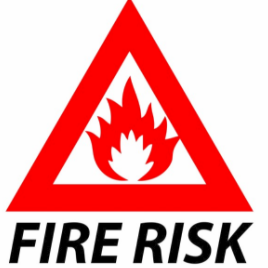Near miss: potential fire in the laundry room

What happened?
A vessel was on standby when a fire alarm was activated from the laundry room. The steward was nearby and took immediate action by switching off the relevant circuit breaker. All crew members proceeded immediately to the muster station. The fire-fighting team subsequently conducted an assessment and found a dryer machine had overheated, due to prolonged use and being overloaded with clothing.
What went wrong? What were the causes?
- Immediate cause: Around ten days earlier, the crew had carried out repairs on the dryer and replaced its thermostat with a spare thermostat from oven, as a temporary measure;
- This allowed the dryer machine to continue to operate when overheated;
- The failure and subsequent repair of the dryer with the inappropriate part had not been reported to the company, though this was required by company procedures;
Lessons learnt
- Replacement of components should follow original specifications; any changes from the original, if approved, should have followed a management of change process. In this particular case, the change of specifications would not have been approved and the incident would not have occurred.
This was a potentially very serious incident which could easily have been prevented. Procedures were not followed; the failure and repair were not reported to management. The repair using an inappropriate part introduced a huge further risk to the safety of the vessel and its crew, and should never have been permitted.
Members may wish to refer to the following incidents:
Safety Event
Published: 31 January 2018
Download: IMCA SF 03/18
IMCA Safety Flashes
Submit a Report
IMCA Safety Flashes summarise key safety matters and incidents, allowing lessons to be more easily learnt for the benefit of all. The effectiveness of the IMCA Safety Flash system depends on Members sharing information and so avoiding repeat incidents. Please consider adding safetyreports@imca-int.com to your internal distribution list for safety alerts or manually submitting information on incidents you consider may be relevant. All information is anonymised or sanitised, as appropriate.
IMCA’s store terms and conditions (https://www.imca-int.com/legal-notices/terms/) apply to all downloads from IMCA’s website, including this document.
IMCA makes every effort to ensure the accuracy and reliability of the data contained in the documents it publishes, but IMCA shall not be liable for any guidance and/or recommendation and/or statement herein contained. The information contained in this document does not fulfil or replace any individual’s or Member's legal, regulatory or other duties or obligations in respect of their operations. Individuals and Members remain solely responsible for the safe, lawful and proper conduct of their operations.
